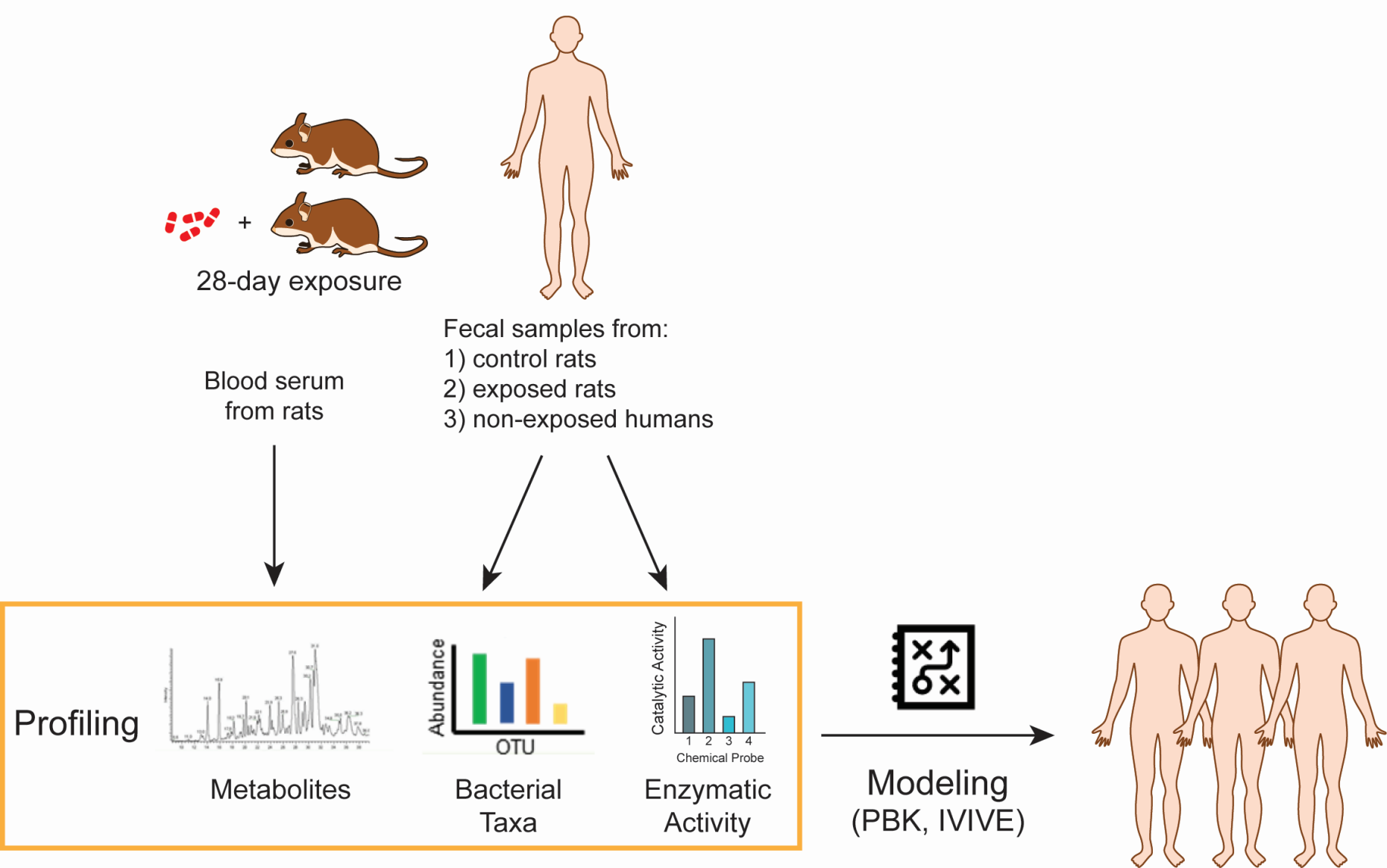ELUMICA: Elucidating Microbial Metabolic Capacity
The gut microbiota is a known significant influencer of human health and disease. To understand this relationship, there is a need to integrate knowledge of the composition of the gut microbiome with its functionality in terms of microbiota-mediated metabolic processes. We aim to elucidate mechanisms governing interactions between gut microbes and host that alter exposure and susceptibility to drugs and chemicals. We have built a multi-disciplinary team to develop an experimental strategy to integrate metabolomics, genomics, and biochemical results in order to understand and extrapolate the correlation between bacterial composition and enzymatic activity to human health status. The newly proposed work will take a significant new step forward involving an integrative approach anticipated to yield profound knowledge about the functionality and metabolic capacity of the human and rodent microbiome.
Representative Publications
Zhang, J., Lacroix, C., Wortmann, E., Ruscheweyh, H., Sunagawa, S., Sturla, S., Schwab, C. (2019). Gut microbial beta-glucuronidase and glycerol/diol dehydratase activity contribute to dietary heterocyclic amine biotransformation. BMC Microbiol. 19(1), 19
external pagehttps://doi.org/10.1186/s12866-019-1483-xcall_made
Fekry, M., Engels, C., Zhang, J., Schwab, C., Lacroix, C., Sturla, S., Chassard, C. (2016). The strict anaerobic gut microbe Eubacterium hallii transforms the carcinogenic dietary heterocyclic amine 2-amino-1-methyl-6-phenylimidazo[4,5-b]pyridine (PhIP). Environ. Microbiol. Rep. 8(2), 201
external pagehttps://doi.org/10.1111/1758-2229.12369call_made
Engels, C., Schwab, C., Zhang, J., Stevens, M., Bieri, C., Ebert, M.-O., McNeill, K., Sturla, S. (2016). Acrolein contributes strongly to antimicrobial and heterocyclic amine transformation activities of reuterin. Sci. Rep. 6, 36246
external pagehttps://doi.org/doi:10.1038/srep36246call_made
Collaboration and Funding Partners

Main Contacts
Ally Zhai

